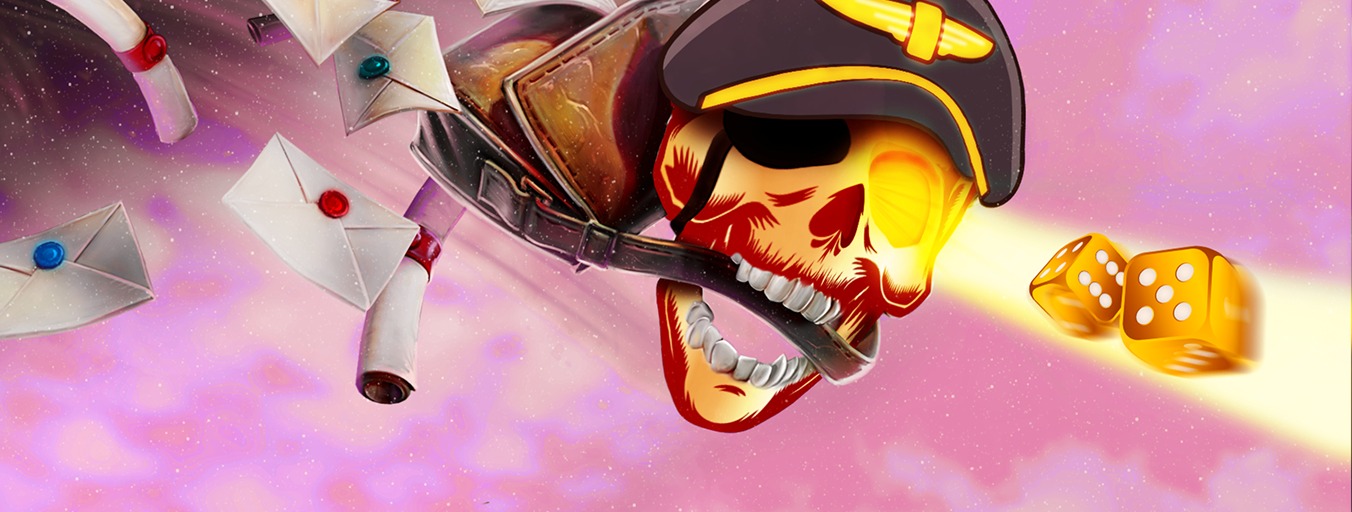people-blogs

May 06,2025 • 5 min read
Tokenized Rewards vs Traditional In-Game Points: Why $SKL Wins Every Time

In traditional games, points are like colorful, and ultimately worthless. You might accumulate thousands of them, but they vanish the moment you close the app. Now imagine a gaming world where every point you earn has real value, can be traded, staked, or even used as a governance tool in shaping the game's future.
That’s exactly what Skulls Ludo, a blockchain multiplayer game, is building with its native token, $SKL. In the growing universe of GameFi projects, Skulls Ludo stands out not just for blending classic Ludo gameplay with blockchain mechanics, but for replacing outdated in-game points with tokenized, player-owned rewards.
Let’s break down why $SKL is not just better—it’s revolutionary.
What Are Traditional In-Game Points—and Why Are They Flawed?
Traditional in-game points are typically used in Web2 gaming environments. You might earn them through achievements, matches, or daily logins—but:
-
You don’t own them.
-
You can’t trade them.
-
They have no value outside the game.
-
They reset with app deletions, account bans, or game shutdowns.
In essence, these points exist in a closed system, serving as temporary motivators, not lasting assets. They benefit the game publisher—not the player.
What Are Tokenized Rewards in Blockchain Games Like Skulls Ludo?
Tokenized rewards are cryptographically secure, blockchain-based assets—usually in the form of cryptocurrencies or NFTs—that carry real-world value and ownership.
In Skulls Ludo, the $SKL token serves as the lifeblood of the ecosystem, offering not just value but functionality:
-
Tradable: Swap $SKL on DEXs or use it in the NFT marketplace.
-
Stakeable: Lock your tokens for passive income.
-
Spendable: Enter paid tournaments or upgrade in-game assets.
-
Governable: Vote on community decisions and game updates.
-
Ownable: No central authority can take your tokens away.
This changes the equation: your time and skill become a source of actual wealth.
$SKL vs Traditional Points – A Head-to-Head Comparison
|
Feature |
Traditional Points |
$SKL Token (Skulls Ludo) |
|
Ownership |
Centralized |
Decentralized |
|
Value |
Zero |
Real monetary value |
|
Tradeability |
Not allowed |
Freely tradable |
|
Interoperability |
Locked to one game |
Usable across ecosystem |
|
Earnings |
Symbolic |
Financial |
|
Expiry Risk |
High |
None (on-chain) |
|
Influence |
None |
DAO-based voting power |
Conclusion? Traditional points die in the app. $SKL tokens live on the blockchain.
Why Crypto Gamers Are Choosing Tokenized Economies
The crypto gaming revolution is driven by one idea: If you’re spending time, you should be earning value.
Skulls Ludo taps directly into this GameFi mindset, offering players more than entertainment. With $SKL, your gameplay becomes an investment—backed by blockchain transparency and governed by community incentives.
Top reasons crypto gamers prefer $SKL over traditional point systems:
-
Financial freedom – Games are no longer just fun; they’re income streams.
-
Asset liquidity – Trade NFTs and $SKL tokens in real time.
-
Community control – Players vote, not publishers.
-
Staking for passive income – Unlike points, $SKL grows even when you're not playing.
-
Multiplayer competitiveness – Higher staked tournaments = higher rewards.
How Skulls Ludo Uses $SKL to Reshape the In-Game Economy
Unlike traditional free-to-play models that trap users in endless grind loops, Skulls Ludo introduces a true economic layer to its board game universe.
$SKL Token Utilities in the Game:
-
Game Entry Fees: Use $SKL to enter ranked or high-stakes matches.
-
P2E Rewards: Win matches and quests to earn $SKL directly.
-
NFT Marketplace: Buy, trade, or upgrade Skulls NFTs using $SKL.
-
Staking Pools: Stake tokens to earn APY and gain VIP access to exclusive drops.
-
Governance Votes: Propose and decide future game mechanics, reward structures, and expansion ideas.
This is not a game where you grind for a badge. It’s a decentralized gaming app where your time converts into tokens—and tokens build wealth.
The Ripple Effect – How $SKL Fuels Ecosystem Expansion and Community Growth
The Skulls Ludo metaverse is more than a board—it’s a living digital economy. Tokenized rewards open new layers of engagement:
-
Player-owned Guilds: Pool $SKL to form guilds with exclusive matchmaking benefits.
-
NFT Yield Farming: Use Skulls NFTs in future DeFi protocols.
-
Multiverse Integrations: Use $SKL in cross-game partnerships and other metaverse projects.
-
Real-World Merch: Redeem $SKL for Skulls Ludo gear and events.
With traditional games, players are users. With Skulls Ludo, players become stakeholders.
Frequently Asked – Why Should I Switch to Tokenized Games Like Skulls Ludo?
Isn’t blockchain gaming too technical?
Skulls Ludo has a Web2-friendly interface and easy wallet connection. No crypto experience required.
Can I actually make money?
Yes. With consistent gameplay, staking, and NFT trades, many players generate real income.
How secure is my $SKL?
$SKL is deployed on Polygon, a secure and low-fee Layer-2 blockchain. Your tokens are yours, not stored by a company.
What makes $SKL different from other GameFi tokens?
Its design is sustainable, tied to real use cases (gameplay, NFTs, governance), with deflationary mechanisms and community-controlled distribution.
Skulls Ludo Is More Than a Game—It’s a Digital Economy
The era of points is over.
The era of player-owned, blockchain-powered economies is just beginning.
$SKL is your key to this transformation. It’s not just a reward—it’s currency, equity, and influence wrapped into a single token. Skulls Ludo proves that when you play with purpose, the rewards should follow you beyond the game screen.
Nolan Parker Details
User Profile
- Full name
- Nolan Parker
- Email address
- ntxraja@gmail.com
- Join Date
- 2025-05-06
- State
- City
- Pincode
- Address
- Follow us on Facebook
- Follow us on Twitter
- Website Name
- Bio